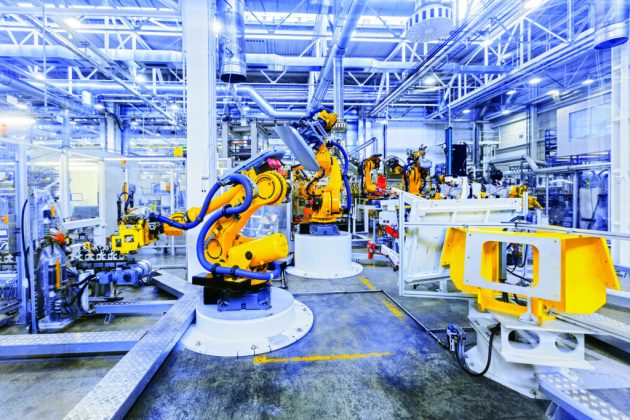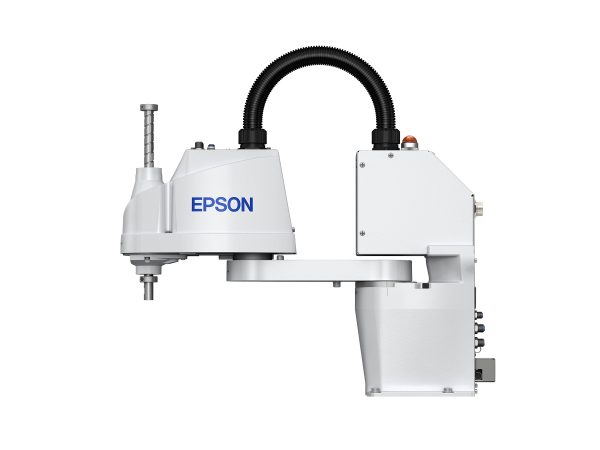
SCARA robots increasing efficiency through automation in manufacturing
by Sadi Muktadir
Epson’s robots are a strong fit for industrial processes requiring precision automation as opposed to heavy machinery and low volume processes.

PHOTO: Canadian Plastics/Adobe Stock
SCARA robots are now being increasingly found in automation projects in a variety of manufacturing verticals, from pharmaceutical to automotive production. On May 25, EPSON Robots’ ‘Automate Boldly’ virtual event is planning to showcase their efforts in increasing efficiency and maximizing precision at scale through SCARA robots.
Scott Marsic, Group Product Manager of Robotics at Epson broke down SCARA robots and their differences from many of the other robots on the market.
“SCARA robots make up 20% of the robotics market in manufacturing and industrial settings. It’s a 4-axis robot, and operates flat, and because it doesn’t operate at as many angles as a 6-axis robot, it is much faster and more precise as a result.”

T3 SCARA robot.
Scott went on to explain that Epson’s robots are a strong fit for industrial processes requiring precision automation as opposed to heavy machinery and low volume processes. Most of Epson’s robots are found in the automotive markets, consumer electronics and now life science applications due to COVID-19.
The speed and precision of SCARA robots lend themselves well to simple, scalable solutions, and Epson was recently involved in NuTech Tooling Systems’ syringe coating machine, a pharmaceutical OEM application that will be used in the fight against COVID-19.
The upcoming Automate Boldly event is meant to provide manufacturers across all verticals an opportunity to visualize a path to automation, and the Epson team was forthcoming in breaking down the most common hurdles in applying automation processes.
“A lot of manufacturers don’t realize how easy SCARA robots are to use,” says Scott Marsic. “People don’t realize how easy it can be to automate scalable processes. And we’re finding that among new entrants and experienced users as well. They both think it’s difficult, with the more experienced users often not understanding how to take advantage of their robots.”
Epson’s robots are found in a variety of factories and industrial settings across Canada, and Epson is looking to expand its presence north of the border. For pick-and-place applications, SCARA provides an alternative manufacturing option for small components like hydraulic valves used in vehicles, and moderate to large injection-molded parts.